Sex Matters in 2024
It’s been our busiest and most productive year yet. Here’s what we have been doing in the last 12 months.
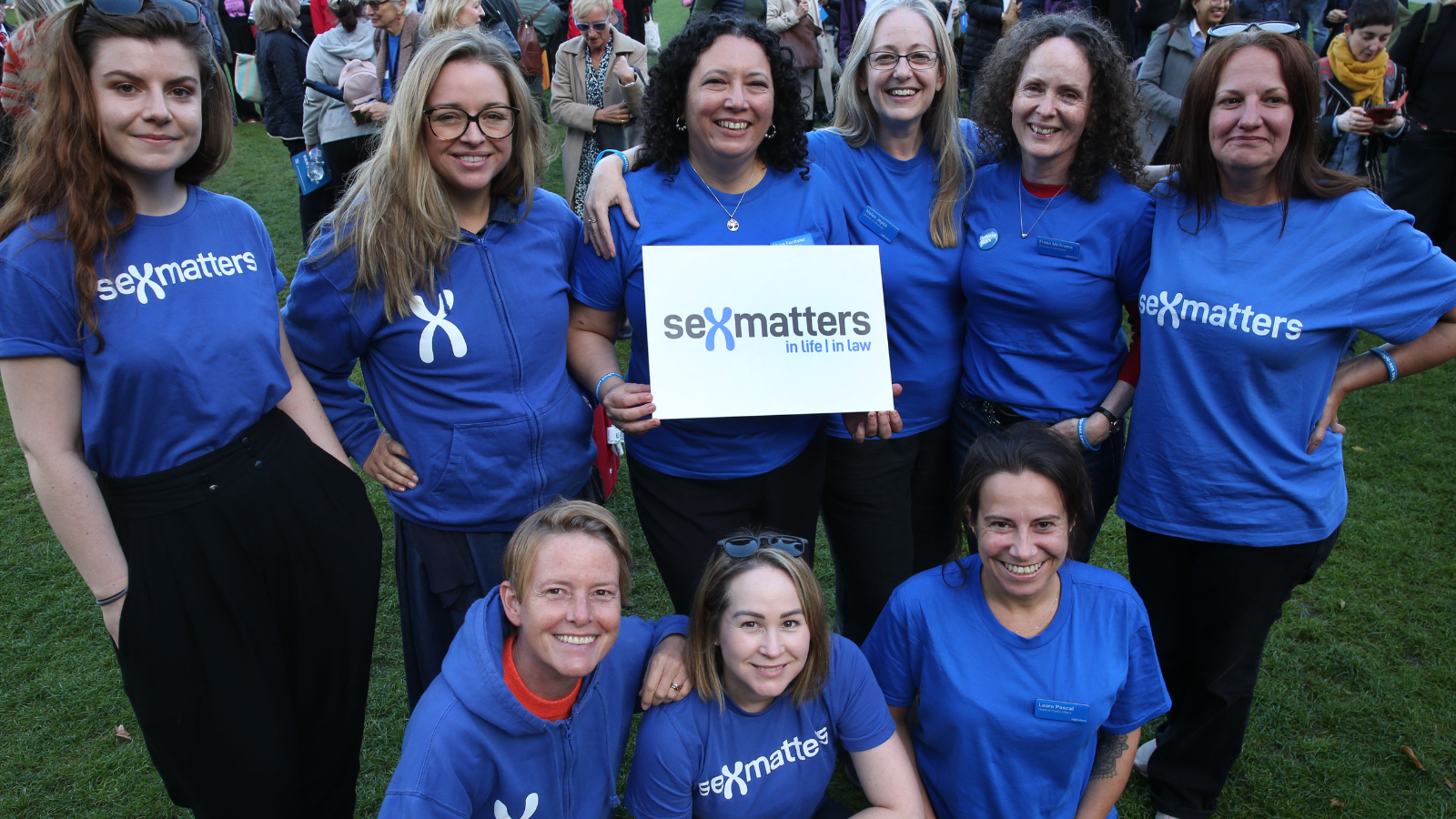
Making the Equality Act clear
Last year our petition to make sex clear in the Equality Act gained over 100,000 signatures and led to a parliamentary debate in Westminster Hall. It did not make it into law before the general election, but there can be no doubt that the campaigning efforts of so many women and men put sex and gender on the election agenda.
This is unfinished business. As you’ll see, much of our work this year has been to push for the clarity we all need. Our general election campaign, our post-election lobby day in the autumn and much of our political engagement has been about ensuring that the meaning of sex is correctly applied so that everyone’s rights are protected.
The question of “What is a woman? was brought to the Supreme Court in November by For Women Scotland. We intervened in support (alongside a group representing Scottish Lesbians, LGB Alliance and the Lesbian Project ).
Sex Matters was given permission to make oral submissions. We agreed with the position of FWS that the results of applying the Gender Recognition Act to the Equality Act are absurd. Ben Cooper KC delivered a careful legal analysis to show why the law should be read so that “sex” holds its ordinary, biological meaning. We will get the judgment sometime next year.
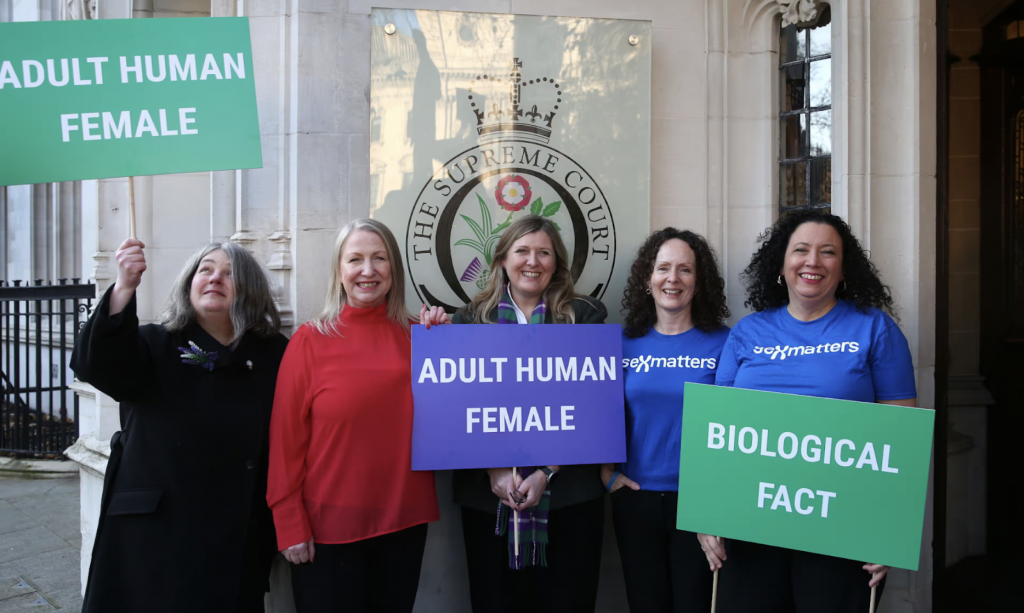
While the For Women Scotland case concerned the legal principle of the definition of sex, we are also concerned with how it plays out in practice.
Protecting the rights of vulnerable women – in the women’s sector, justice system and healthcare
In January we published Women’s services: a sector silenced, a report on the impact of gender ideology and unclear laws on the women’s sector. We launched it at the House of Commons, joined by its author Matilda Gosling and the gender-critical organising groups Labour Women’s Declaration, Conservatives for Women and Liberal Voice for Women. The meeting was chaired by Dianne Hayter, Baroness Hayter of Kentish Town, and women’s sector leaders Karen Ingala Smith, Shonagh Dillon and Rhona Hotchkiss brought frontline experience.
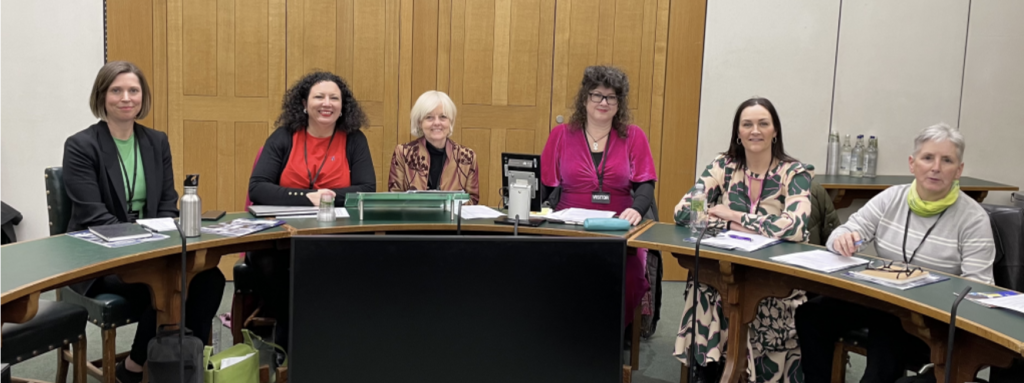
Together with Women’s Rights Network and Fair Play For Women, we wrote to the Minister of State for Crime, Policing and Fire Prevention, about the policy of allowing male officers who identify as women to strip-search women and girls.
The NPCC withdrew its policy (which was based on gender self-ID) following public outrage and told individual police forces to develop their own policies, while it reviews its own.
Together with the Women’s Rights Network we met with senior officers at the National Police Chiefs’ Council (NPCC) and told them it is unacceptable for men, even those with a government certificate, to strip-search women. We later took part in their consultation process, but withdrew, along with LGB Alliance and WRN, when it became clear that it was not fit for purpose.
There is more to come on this issue in 2025. British Transport Police has released its new searching policy. We are preparing to bring a judicial review against it. We think it is wrong in law to interpret the Gender Recognition Act as meaning that male police officers with GRCs can search, or even strip-search, women.
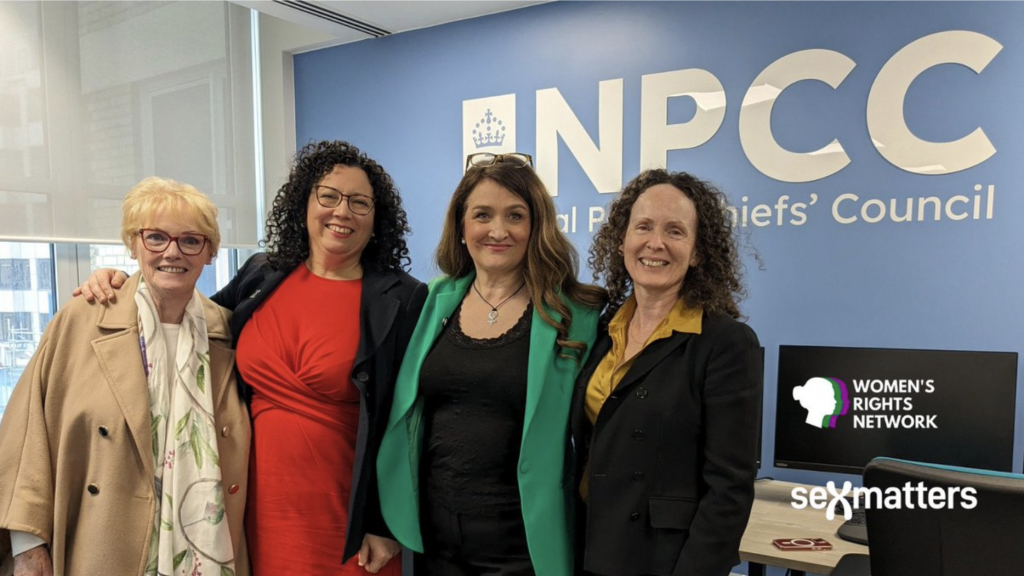
We have also been paying attention to the National Health Service. We wrote about ideological capture in the NHS and highlighted how patient records in the National Health Service have been corrupted so that they no longer accurately record sex. Later in the year we welcomed proposed changes to the NHS constitution to reflect the Equality Act 2010 and protect single-sex care, and responded to the consultation.
We were delighted when the Darlington nurses launched their case over being forced to share changing rooms with a trans-identifying man, and have kept in touch with them. We are also in touch with the nurse in Fife who has a similar case, and we have challenged the court to make this hearing and its evidence open to the public and reporters like Tribunal Tweets.
We are supporting a group of trustees at the breastfeeding charity La Leche League who are trying to secure the future of the organisation as a single-sex charity, and have just been forced out after coming under pressure from internal activists and its international parent body to provide breastfeeding support to men.
We have been a critical friend to the Equality and Human Rights Commission. We have been tracking and opposing the campaign of harassment against Baroness Falkner, who came under fire for standing up for women’s rights. When Stonewall succeeded in getting the UN-linked organisation GANHRI to put the EHRC under “special review”, we compiled a dossier of evidence about the broader campaign of threats and intimidation against gender-critical women; then, together with 38 other organisations, we wrote to GANHRI, the Office of the High Commissioner for Human Rights, and the Special Rapporteurs on violence against women and girls and on freedom of religion or belief. In May GANHRI announced that the EHRC retained its “A” status, seeing off the attack by Stonewall.
We have also been critical of the EHRC: scrutinising its guidance to schools, calling on it to put safeguarding first, questioning its guidance on discriminatory advertisements, and disagreeing with its interpretation that “sex” in the Equality Act is modified by a gender-recognition certificate.
Keeping children safe
Getting clear guidance for schools on what to do when a child declares that they are transgender is crucial to stopping the school-to-clinic pipeline and protecting all children. We know from teachers and parents that too many schools are following Stonewall advice or that of activist teachers or pupils. Throughout the year we have engaged with government on the development of guidance for schools in England, responding to the Department for Education (DfE) consultation and analysing and criticising the affirmation approach being promoted to schools by organisations such as Mermaids and Stonewall.
In September we published a model policy for schools on how to set clear, fair policies in relation to sex, and how to accommodate children experiencing gender distress. Our model policy is aligned to safeguarding legislation, the Cass Review, the Equality Act 2010 and the DfE draft guidance. It is designed to help school and college leaders be confident that their approach supports robust safeguarding and does not subject any child to unlawful discrimination or harassment under the Equality Act 2010.
In March we helped to brief peers in the House of Lords to debate a proposed ban on so-called “conversion therapy” (actually a proposal that would create a chilling effect against ordinary talking therapy and against parents, teachers and therapists resisting transition).
In April the final report of the Cass Review was published. It demolished the assumed basis for treating gender-distressed children with hormones, affirmation and the promise of surgery. We welcomed Hilary Cass’s findings as a major step forward, dispelling myths on several fronts, and setting out ways to offer better, safer care for children and young people. We quickly got out a briefing that distilled key points from the 388-page report, helping to shape its reception.
Following the Cass Review, we published a briefing dispelling myths about suicide and transgender health care.
Emergency restrictions on puberty blockers were announced by the government in May. We hosted an event in London to celebrate some of the whistleblowers, campaigners, clinicians, researchers and journalists who have spoken up to get to this point, including Michele Moore, Stephanie Davies-Arai, Michael Biggs, Sue Evans and Heather Brunskell-Evans.
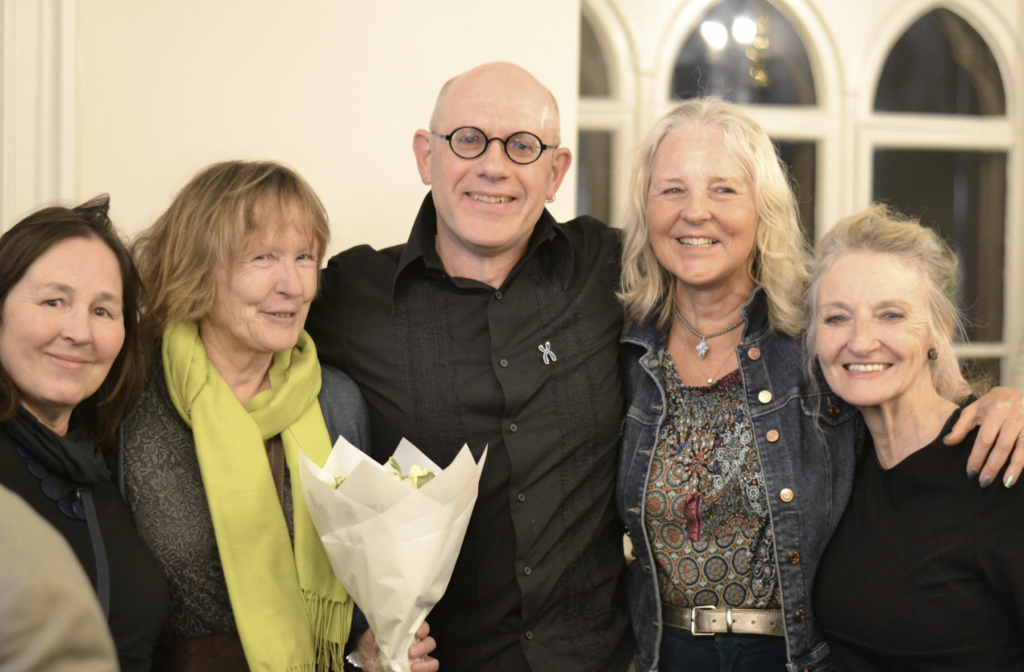
Together with other organisations including the Gay Men’s Network and the Lesbian Project, we wrote to the new Prime Minister after July’s general election urging him to resist calls to take speedy action to legislate to ban so-called conversion therapy and instead to commit to five tests that must be satisfied by any proposed legislation, based on the principle of “first do no harm”. We will continue to pursue this approach when the draft bill is produced.
Empowering people to protect their rights in the workplace
In July, Sex Matters hosted a meeting of people involved in workplace sex equality and equity networks (SEENs) and other sector networks. Gender-critical networks have sprung up in sectors including the civil service banking and finance, human resources, the police, healthcare, universities and Parliament. Groups at the meeting included established SEENS and other sector networks, as well as nascent groups. The day was a chance for groups at different stages of development and organisers from all over the UK to gain courage, make connections, share learning and inspire each other into action.
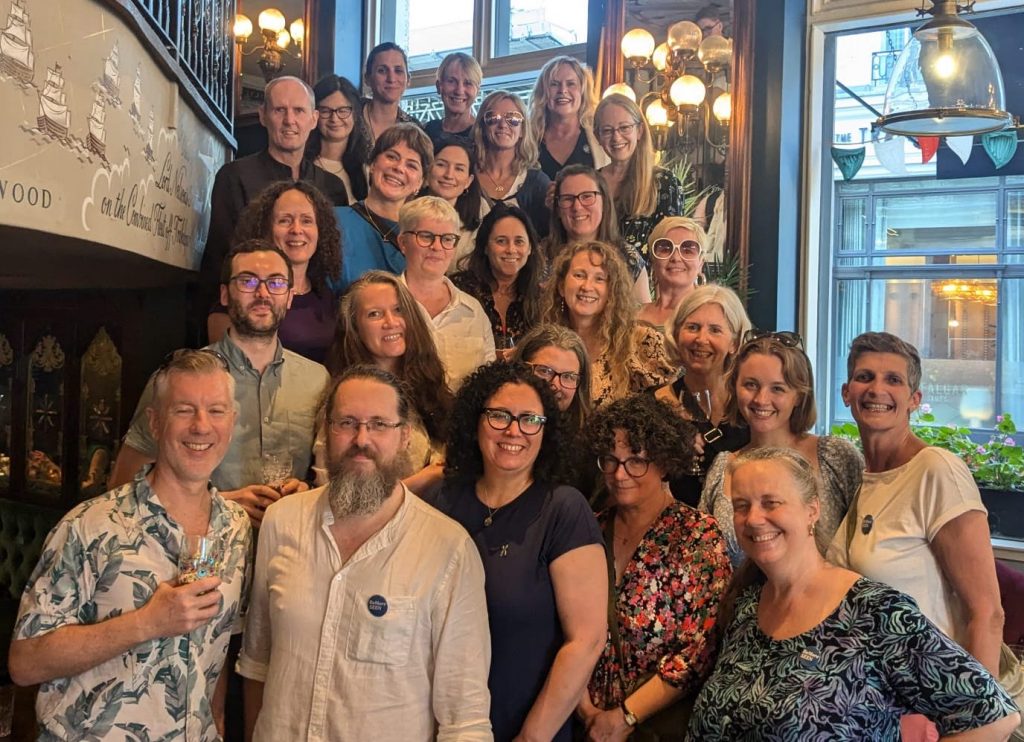
We also wrote up key employment-tribunal judgments as they happened – publishing a review of lessons from the Jo Phoenix case at the Open University, and after the Edinburgh Rape Crisis Centre (ERCC) case a review highlighting that any rape-crisis centre that does not recognise the two sexes clearly will be unable to meet the Rape Crisis National Service Standard.
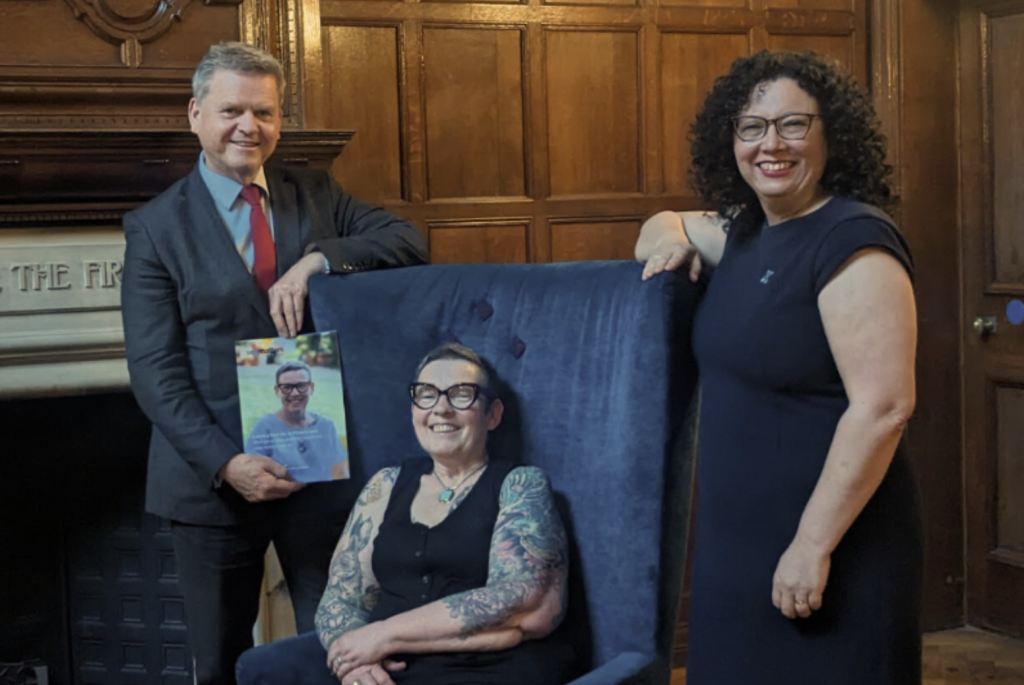
We intervened in the important belief discrimination case, Higgs v Farmor’s School, at the Court of Appeal. The appeal concerns the question of how courts and tribunals should approach religious or philosophical belief-discrimination cases concerning the “manifestation” of belief. We were represented by Akua Reindorf KC, with support from Michael Foran.
Next year we will be producing more briefings on legal cases, and on common questions about the law in relation to toilets, pronouns and other issues that arise at work.
Data, science and statistics
Sex Matters advisory group member Professor Alice Sullivan was commissioned by the Department for Science, Innovation and Technology to undertake an independent review of data, statistics on sex and gender. We gave our input and look forward to seeing it published next year.
We brought the evolutionary biologist Professor Richard Dawkins to the Houses of Parliament to brief MPs and peers on the biological reality of the two sexes.
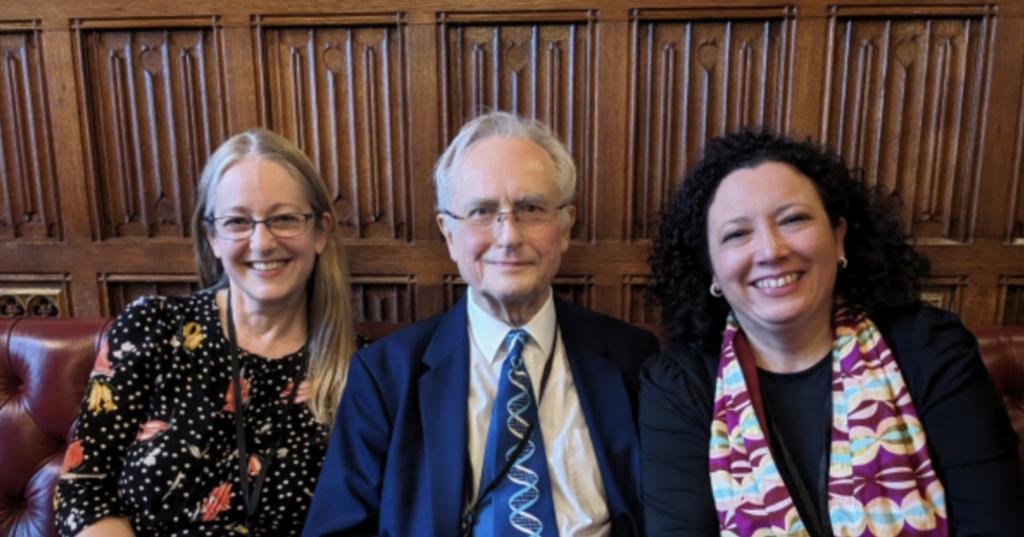
Digital identity data is something we have had a longstanding concern about, both as a risk and an opportunity. In April we published a briefing on the government’s plans for digital verification services and the need to tackle the problem of misrecorded sex data.
The new government has carried on where the last one left off with digital verification, so we have picked up our work on digital identity, and it is starting to get cut-through. We are now working to support amendments to the Data (Use and Access) Bill.
We have kept up scrutiny on the Office for National Statistics, following the work by Sex Matters board member Michael Biggs, who highlighted problems with the gender-identity data. In September the Office for Statistics Regulation published its final report on the Census 2021 gender-identity statistics concluding that they do not comply with important quality aspects of the Code of Practice for Statistics and confirming the cancellation of the accreditation of these statistics.
The general election campaign
On 22nd May 2024, Rishi Sunak called a general election to be held on 4th July.
While he was still standing in the rain on the steps of 10 Downing Street, we had published our election asks. These moved the debate away from “What is a woman?” gotchas to practical questions about single-sex services.
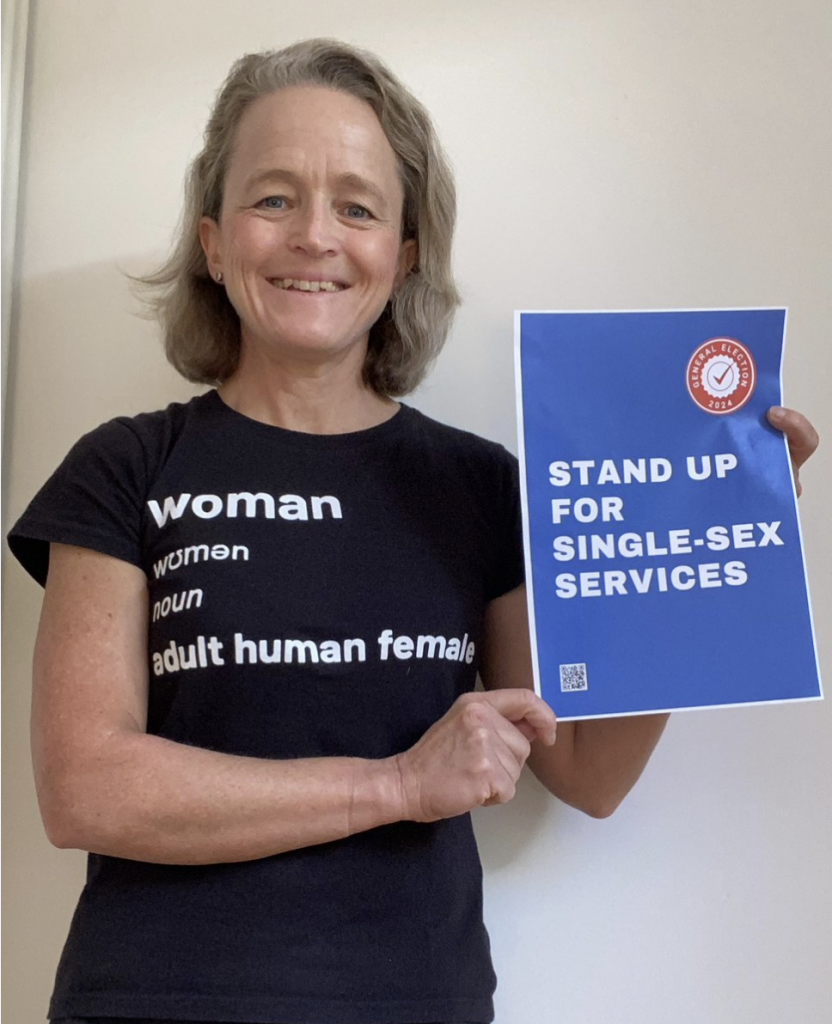
We launched our election campaign microsite on 30th May and published an analysis of every major party’s manifesto as it came out, together with a drumbeat of stories and analysis around sex-based rights. The issue made the front pages of the newspapers and we featured in 25 national newspaper articles, three Scottish national news articles and three current affairs magazine articles, plus five major broadcast interviews and nine online news interviews, including Sky and BBC.
We sent out campaign packs and thousands of emails to supporters. Our polling showed that voters across the political spectrum are more supportive of making the Equality Act clear than making it easier for people to change their birth certificates. The message that sex matters got through loud and clear during the election campaign, thanks to thousands of people who wrote to candidates, talked to canvassers on the doorstep, asked questions at hustings and called in to radio shows.
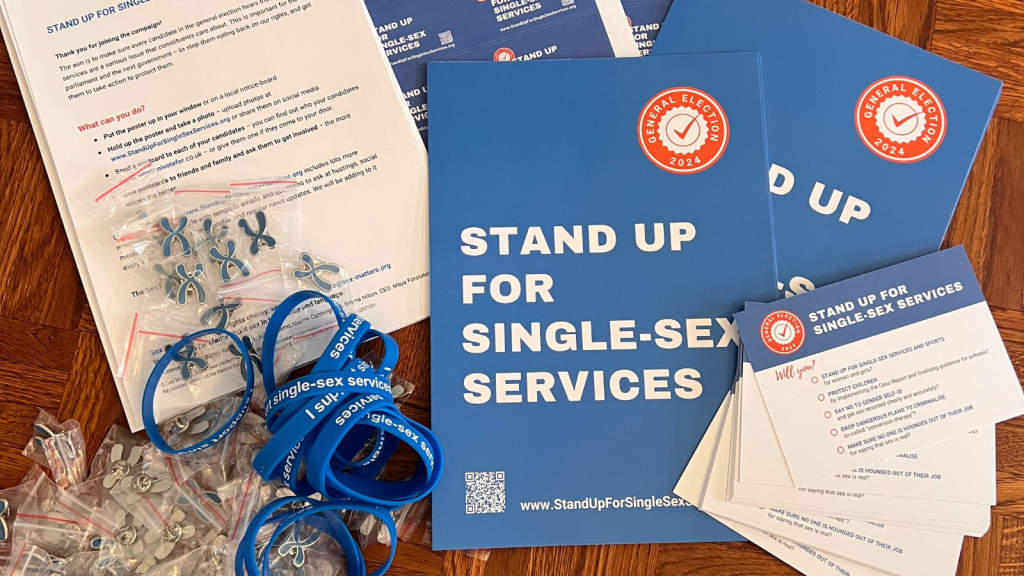
After the election
We got on with working with the new government. Labour’s position has shifted in the right direction over the past two years, abandoning self-ID and pledging to protect women’s single-sex services.
We were sad to lose some MPs who have done so much to advance the debate, including Joanna Cherry, Neale Hanvey and Miriam Cates, but we have been working hard to ensure that new MPs and cabinet members understand the issues. We were delighted to see that Dr Hilary Cass is sitting as a crossbench peer in the House of Lords.
We have met with ministers, shadow ministers and dozens of MPs and peers since the election. For the first time, we went to the Labour, Conservative and Liberal Democrat party conferences.
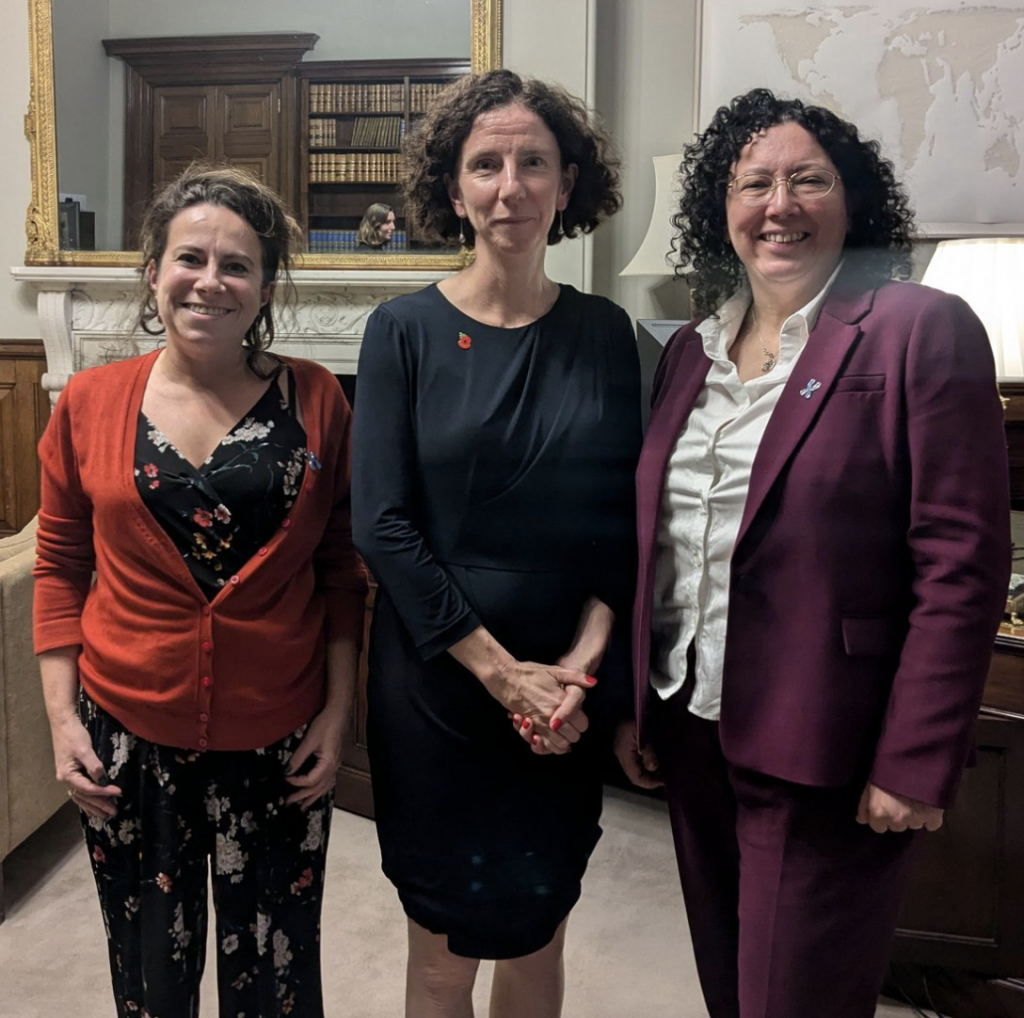
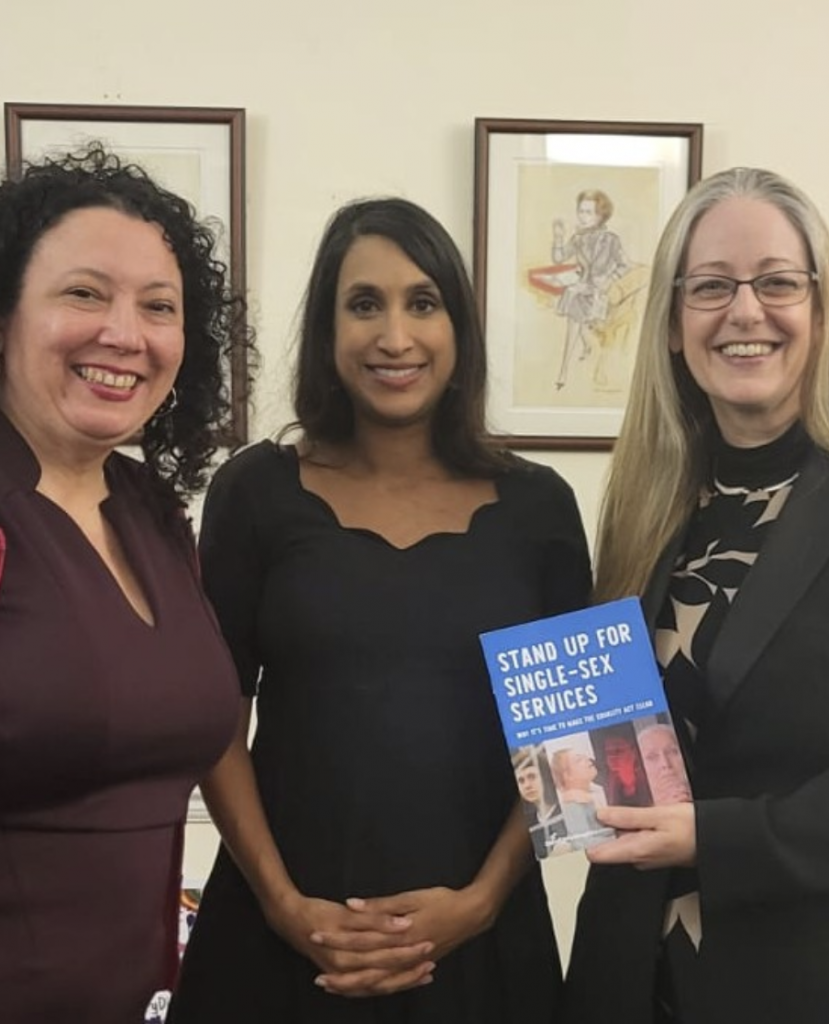
We organised a lobby day to bring the issue to the new government. On 11th September, hundreds of people travelled to London to meet their MPs. We produced materials and briefed supporters to have effective conversations with their MPs, and introduced them to others in their constituency.
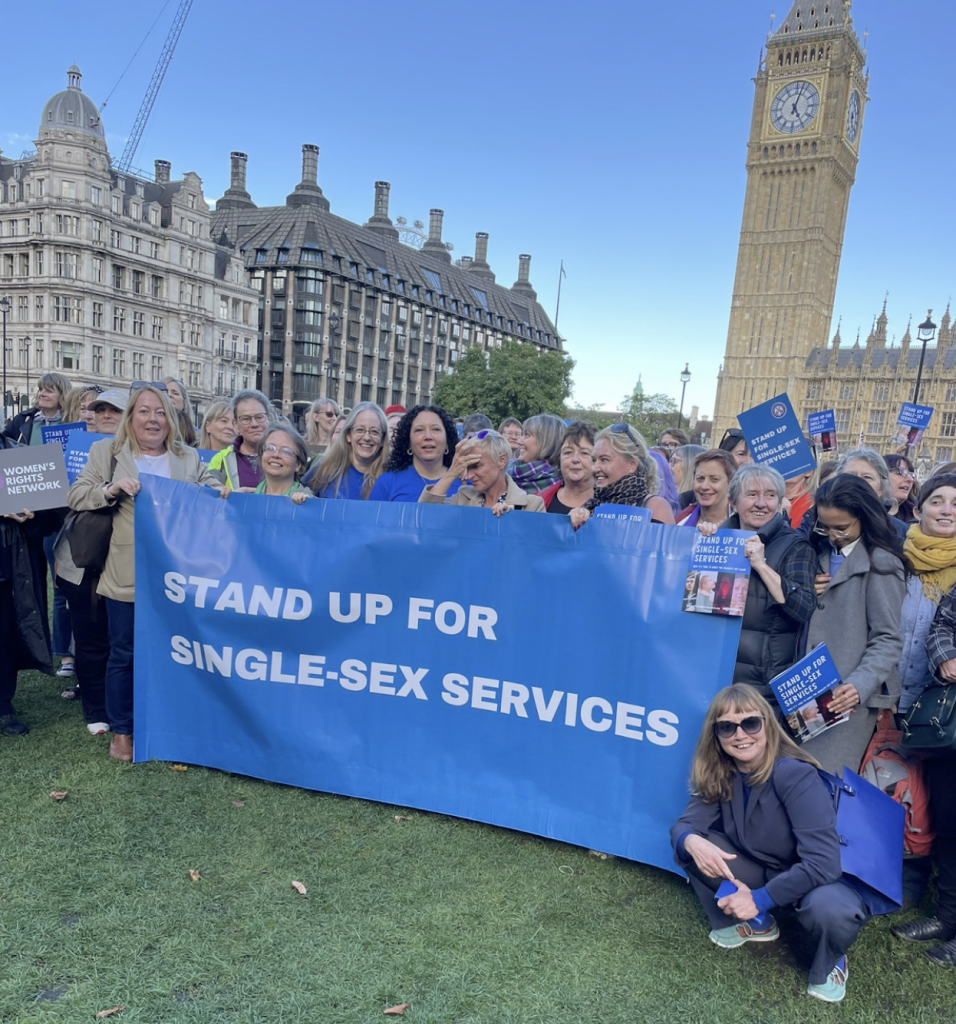
Following the lobby day, Sex Matters has forged new relationships with several MPs across all the major political parties.
Sport
In August came the Olympics and the scandal of two male athletes with disorders of sexual development (DSDs) competing in the women’s boxing. We produced a hard-hitting short video about the unfairness of men in women’s sports, and briefings on disorders of sexual development, and the problem of male inclusion in women’s sport. We hosted a webinar for journalists on the Olympic boxing situation and the science of DSDs with Fiona McAnena, Dr Emma Hilton, Sharron Davies and Mara Yamauchi – viewed 14,000 times that week. Our briefing itself made headlines and improved the quality of reporting on the issue. Following the debacle, Sebastian Coe, the leading candidate for the position of president of the International Olympic Committee, said that protecting female sport is non-negotiable.
We have continued with our focus on protecting the female category in sport throughout the year, asking people to send us details of encounters with men in women’s sports so that we can raise the issue with politicians.
With Fiona McAnena leading our sport work, we are pushing national and international governing bodies to protect the female category.
International reach
We started the year by publishing an in-depth report on the impact of the legal situation in the UK on preventing and combating violence against women. We submitted this together with Fair Play For Women, Transgender Trend, LGB Alliance, the Women’s Rights Network, For Women Scotland and Merched Cymru to to GREVIO, the international group of experts that monitors whether countries are complying with the Istanbul Convention in advance of their visit to the UK.
We argued that the UK is in breach of its international commitments because the interpretation of the definition of sex in the Equality Act no longer clearly reflects the ordinary meaning. This is exacerbated by widespread adoption of “Stonewall law” – policies that are not aligned to the law at all, but to gender self-identification. We met the GREVIO team and explained how lack of clarity about the meaning of woman and man in law is undermining the provision of women’s services. The results of this will come out next year.
We made a submission to the World Health Organisation against activist influence on medical standards for transgender healthcare, alongside medically focused groups: the Clinical Advisory Network on Sex and Gender (CAN-SG), Genspect, the Society for Evidence Based Gender Medicine (SEGM), Transgender Trend, Thoughtful Therapists and With Woman, as well as the UN Special Rapporteur on violence against women and girls.
Together with other groups working on sex-based rights, we met the UN Special Rapporteur on Violence against Women and Girls, Reem Alsalem, during her visit to the UK.

In her statement following the visit she described her meeting with civil-society organisations as “very insightful” and said that that lack of clarity about sex “has a devastating impact on the ability of authorities and society to tackle the root causes of violence against women and girls (VAWG) – in part by obfuscating the reality that VAWG is predominantly perpetuated by males.” Her final report is due in June 2025.
We also gave evidence to Reem Alsalem for her report on violence against women and girls in sport.
On 1st November the law on gender-self ID came into force in Germany. Helen spoke in Berlin and Maya spoke at the protest outside the German Embassy in London.
Public awareness and understanding – media and events
We have built up increasingly good relationships with the media and used this to support the European launch of the WPATH files by Mia Hughes and Michael Shellenberger. This report, based on leaked messages from the internal chatboard of the World Professional Association for Transgender Health (WPATH), shone a light on how so-called “gender-affirming care” or “transgender medicine” is leading to widespread medical malpractice on children and vulnerable adults.
In March, Maya, Helen and Fiona, together with other women’s rights campaigners, were looking uncharacteristically polished in the Daily Mail.
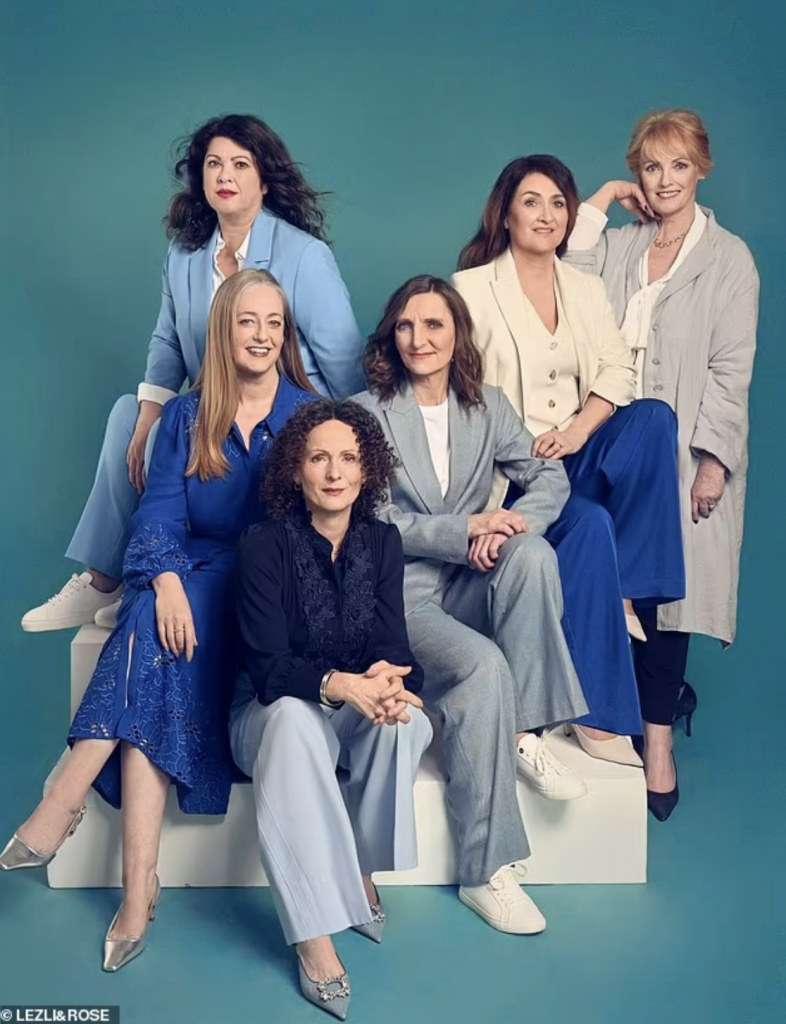
This was just one of more than 389 appearances in national newspapers this year as well as broadcast interviews with Sky, GB News, Talk TV, Times Radio and LBC. We topped 100,000 X (Twitter) followers and we are making inroads on LinkedIn, Instagram, Facebook and YouTube.
While the BBC have not been paying much attention to us, we have been scrutinising them. We have been tracking bias at the BBC, highlighting examples and encouraging people to write to the BBC’s director-general Tim Davie and to complain to the BBC where they see examples of bias.
In July Maya and Helen spoke, along with Jo Phoenix and Akua Reindorf KC, at Sex, Discrimination and the Equality Act at the Taliesin Arts Centre in Swansea, hosted by the Outspoken Women group. The event went ahead without incident, despite protests and a lack of support from Swansea University.
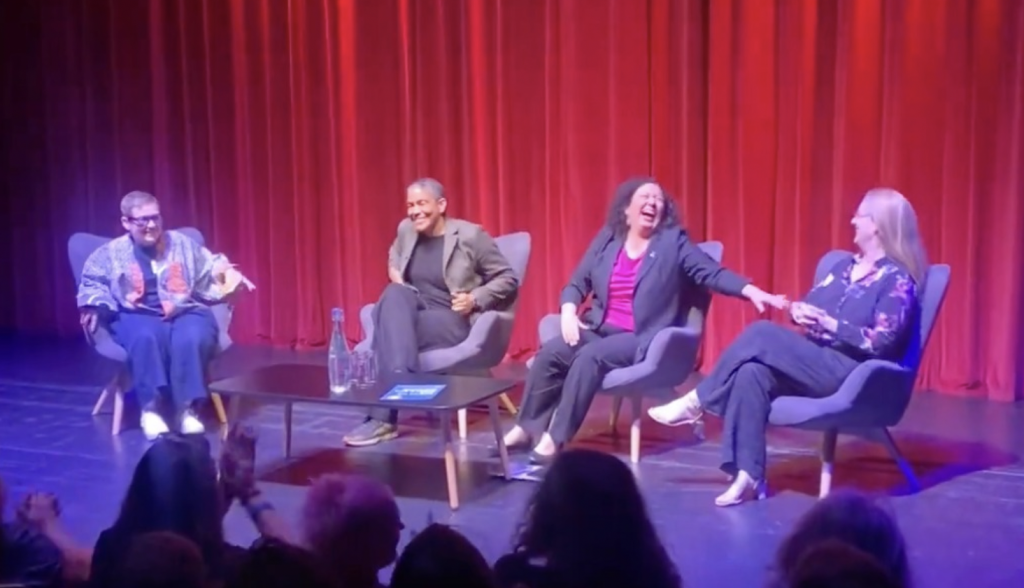
At the end of September Helen Joyce attended the Genspect conference in Lisbon. Helen spoke about sex, gender and human rights – we have published her speech, together with the one from Genspect’s first conference in Killarney, as a booklet.
We attended the LGB Alliance conference with our Sex Matters roadshow stall, and the Battle of Ideas Festival, where Maya, Helen and Fiona spoke.
People, funding and organisation
Sex Matters became a registered charity in April 2024, after an application process that took nearly a year and half. This means that we are recognised as working for the public good. Getting charitable status is not just about Sex Matters as an organisation: it is about a wider movement that in less than five years has gone from a situation where a judge could rule that saying that sex matters is a belief “not worthy of respect in a democratic society” to the charity regulator recognising that our work is for public benefit. This is a huge shift, produced because so many people have stood up and spoken out.
We recruited a new set of trustees from dozens of excellent applicants. Tim Allan, Kate Owen, and Claire Weir joined the board, together with Anya Palmer (co-founder of Sex Matters), alongside existing board members Naomi Cunningham, Michael Biggs, Rebecca Bull, Julia Casimo and Emma Hilton.
We are also announcing a set of new members joining our advisory group in time for next year.
We built up our leadership team led by CEO Maya Forstater; firstly with Helen Joyce deciding in January to stay on as Director of Advocacy and not go back to The Economist, and then with Fiona McAnena joining as Director of Campaigns from Fair Play for Women. Having three of us who can lead on key initiatives, engage with officials and policy makers and share the media work has expanded our capacity this year.
We’ve brought in expertise in political engagement, with Laura Pascal joining as Head of Public Affairs. Our social-media presence improved with the arrival of Nicole Jones, first as social-media intern and now as digital media creator. Most recently Jen Gill joined the team, working on building up our workplace advice.
They joined the existing sparkling team of Emma Moore (administrator), Gemma Winborn Peart (head of marketing), Sally Parkin (head of public relations) and Beck Laxton (publications editor), supported by Jo Bartosch (memo editor), Jack Appleby (web design), Anna Fryer (accountant) and volunteers.
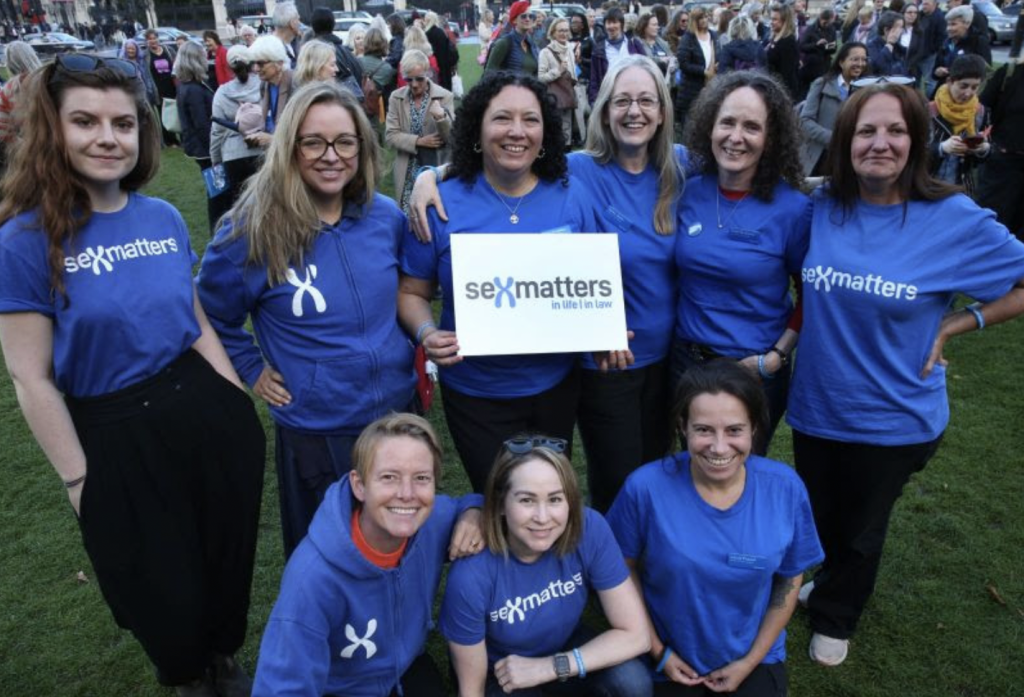
We are grateful for donations – small, medium and large – from thousands of individual supporters. We end the year with 1,987 regular donors who support us each month as well as 1,112 who have given money during the year, either for specific campaigns or as one-off donations. Having so many regular supporters is particularly important as it allows us to plan ahead, and it means that we are always hearing from people about why sex matters, and which organisations need reminding.
We will have produced 48 editions of our weekly memo of news about sex and gender. Next year we are planning to relaunch the memo with a few changes and send it to a wider audience, while creating more opportunities for our regular supporters to talk to us and ask questions.
We have faced organisational and personal smears, and our CEO spent most of the year under police investigation. But we persist. We are demonstrating what it means to be worthy of respect in a democratic society. We have been accepted for membership by the National Council for Voluntary Organisations and thanked by the Supreme Court. The people who call us a “hate group” are starting to look silly.
Every person who stands up, in whatever way they can, makes it easier for the next person. JK Rowling demonstrated this principle in style on 1st April when the Scottish Hate Crime Bill came into effect. She stepped up with a series of April Fool’s Day tweets. When the police declared that her tweets did not warrant criminal investigation, she said:
“I hope every woman in Scotland who wishes to speak up for the reality and importance of biological sex will be reassured by this announcement, and I trust that all women – irrespective of profile or financial means – will be treated equally under the law.”
We are proud to be part of a movement of people being braver every day, and we are proud that as an organisation we have been effective at exposing and challenging gender ideology, engaging with government and the law, and pushing for clarity on sex wherever it matters. Each success makes it easier for more people to speak up, and the more people speak up the more we all succeed.
We could not do our work without our supporters and donors, and the host of organisations, groups and individuals we work with.
Thank you!
If you are able to support us with a donation, or become a regular supporter, we will be able to do even more next year.
